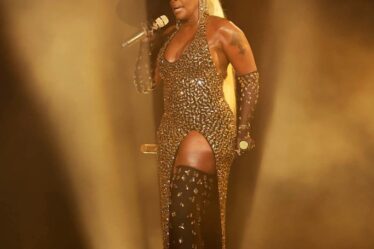
Images and Article from www.businessoffashion.com.
Connecting you to 4,000+ live job opportunities and over 300 of the fashion industry’s leading employers, BoF Careers Week 2022 is designed to transform your career trajectory. Take your next step today at businessoffashion.com/careers.
In the latest #BoFLIVE event, Muriel Wilkins, an executive coach and host of the HBR podcast, Coaching Real Leaders, spoke with BoF’s Robin Mellery-Pratt to share her insights on what leadership roles look like today. From the soft and hard skills required, and how to demonstrate your abilities to take on a senior position at work, the conversation provides actionable advice for taking on a senior role in fashion.
With 58 percent of 1,300 respondents stating “lack of opportunities” was the “biggest obstacle to promotion in the fashion industry,” according to a BoF Survey on LinkedIn this month, the conversation also looked at how potential leaders can better optimise internal and external development opportunities.
Wilkins goes on to share insights on the shifts in expectations placed on senior leaders today, from leading remote teams via new methods of communication, to adopting and investing in new technologies, all while accommodating for multiple generations and their working styles and preferences. Employees today are also looking for leaders to take a stance on societal issues, with 61 percent of workers choosing their employees based on their beliefs and values, according to an Edelman report in 2021. As a result, the task set ahead of senior leaders today is evermore complex.
Below, BoF consolidates Wilkins’ key insights, advice and cited resources from the event, as shaped by her more than 20-years experience as an executive coach.
‘Development Doesn’t Mean Promotion’
MW: If you only see your development as promotion and as this linear progression, you are going to be very disappointed along your career. It’s just like anything else in life. Progression is not linear, it’s a zigzag. What you want to be aware of is what’s the learning that’s going to happen at every point, and be very clear about what you’re going to be getting out of that opportunity. Is it visibility to new people? Is it learning a skill? Is it exposure to a different side of the business? How does that put you a step closer to what you might want to have down the line?
When you consider development opportunities, particularly if temporary assignments, be clear about what the exit is. What are the options that are going to be ahead of you, after you leave this? What does it lead to next? Be clear about what those things might be, have conversations about them so that you know what you might be coming back to.
‘It’s Not Enough to Just Listen’
MW: Given all the new dynamics around change in behaviour and expectations of leaders — you want to drive results, but you can’t do that without listening first. I highly advise new leaders to spend some time listening first, understanding what the context is, understanding from their teams — whether that’s the whole company or their small team. You’ve got to spend some time demonstrating.
The only way that you will engender confidence that you actually have the knowledge, and understand what’s happening, is if you spend some time listening and asking the questions. It’s not enough to just listen though. You want to be able to play back — here’s what I heard, and then move on based on what I heard. That starts leading to the plan on how you drive to results.
What I would say to the older guard is that there’s a middle ground. Your message is not that different, but can you frame your message in a way that’s relevant to those stakeholders. If it’s somebody who’s more junior in their career, who’s looking to position themselves and looking to communicate with those who are more senior — your job is to try to make the bridge. […] How do you frame the expectations that you have in a way that is relevant to them? It doesn’t mean that you give up your agenda. You’re just positioning it in a way that’s going to increase the probability of your message landing in a way that best supports you.
‘Leadership Is a Behaviour and Way of Being’
MW: The way I think about it is management is a position; leadership is an actual behaviour and a way of being. There’s a difference. I see people who are the most junior person in the room and they show more leadership behaviours and competency than the more senior person, particularly when we get to the soft skills. Management from my standpoint is actually a hard skill — it’s your ability to plan what needs to happen to mobilise people to get there, and then to facilitate that process of getting people from point A to point B.
From a leadership standpoint, there are higher order management skills, such as planning. Before planning becomes strategic thinking and setting strategy. You’re leading at a much bigger scale, managing at a bigger scale. Being able to do that is a different skill.
There are certain behaviours that need to be elevated — your ability to have discernment, to make decisions, to ensure followership at a much larger scale. Your ability to not be the one who does the work. But actually mobilises and inspires and influences others to do the work, the ability to prioritise at a much larger scale.
‘Understand What Is Expected of Leaders’
MW: It’s critical that people who are aspiring for senior leadership in the future to focus on understanding what is expected of leaders, not just today, but start understanding what will be expected of them in the future. When you are rising to a more senior role, you’re no longer positioning yourself as a functional expert in your domain — you’re becoming a business leader or an organisational leader.
A few tried and true resources that I think are helpful for anyone just from a pure management and reading standpoint […] There’s a great book called “The Next Level” by Scott Ablin, which does a fantastic job of laying out at every stage in your career. Similarly, a little bit more academic, “The Leadership Pipeline” by Ram Charan. Patrick Lencioni’s work, “The Five Dysfunctions of a Team”, is in my opinion, one of the best, in terms of any type of team and how you work with a team. Then there’s podcasts — there’s a podcast called Coaching for Leaders, which does a tremendous job on different leadership skills that I think it’s great listening for anyone.
What’s required from a hard skills standpoint, is an ability to think strategically, and pure strategic planning skills [or] business acumen skills. […] [Senior leaders] also have to become much more astute and much more knowledgeable about what it means to be a human. […] Soft skills are all to get to that objective. So, the ability to listen, the ability to engage with people in a way that still respects who they are as a person, the ability to see people, the ability to understand where they’re coming from, the ability to show that you care, all while still driving results. That’s where people miss the boat.
Article shared from www.businessoffashion.com



